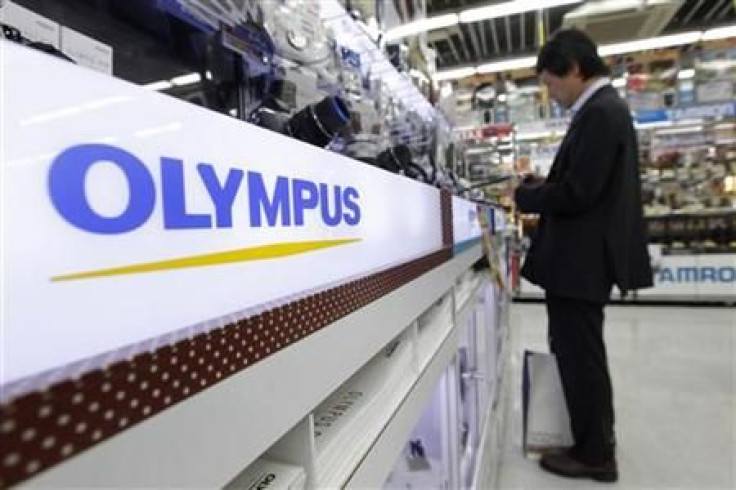Olympus Delays Q3 Earnings Report; Shares Sink

Japan's Olympus Corp said it will not announce its quarterly earnings on Nov. 8 as expected because it needs more time after appointing an external panel to look into past acquisitions, sparking a fresh plunge in the firm's shares.
A spokesman for the scandal-hit maker of cameras and endoscopes said Olympus aimed to release the July-September figures in mid to late November.
The decision came after Olympus named six men, including a former Japanese supreme court justice, on Tuesday to investigate past M&A deals in which it has been accused of making unjustifiably large payments. The move was made to stem an exodus of investors. The panel has set no deadline to complete its investigation.
The decision to delay is not due to any issues pointed out by external parties, the spokesman said. We simply feel it would be difficult to hold an earnings conference under the current circumstances.
Many Japanese firms held their annual earnings announcements later than usual this year as they scrambled to clarify the effects of the March 11 earthquake, but it is unusual to put off an announcement once the date has been made public.
Shares in Olympus plunged as much as 12 percent Friday after the news, before paring losses to close down 6.8 percent at 1,118 yen.
The markets probably don't like this delay in the earnings announcement, said Kiyoshi Noda, chief fund manager at MU investments. The concern is that they won't be able to close their books unless they look properly at good will. People are probably afraid that there is a possibility of the company falling into negative net worth.
Listed firms in Japan are usually required to report quarterly earnings within 45 days of the end of the period. Failure to comply can result in the company being delisted.
The Tokyo Stock Exchange said the usual time limit for reporting July-September earnings is Nov. 14 and approval to report later needs to come from the government.
Olympus said although it has not decided on the reporting date, it would not necessarily wait for the panel to reveal its findings.
The firm has come under increasing pressure to disclose more to address shareholder concerns in an escalating scandal that has wiped around $4 billion off its market value and prompted law enforcement agencies in Japan and the United States to investigate.
One shareholder has threatened legal action against managers responsible for the controversial deals, while another is demanding to see board minutes relating to the acquisitions in question.
The company has lost about 60 percent of its value since it suddenly fired British CEO Michael Woodford on October 14, saying he failed to understand the company's management style or Japanese culture.
Shares in Olympus had risen in May and June after Woodford became president and chief operating officer on hopes that he could cut costs in the struggling camera division. Olympus appointed chief executive in October.
Woodford said he was forced out for questioning astronomical fees paid in the $2 billion acquisition of British medical equipment company Gyrus in 2008, as well as the acquisitions of three small Japanese firms whose value had been largely written off after the purchases.
The investigative panel appointed by Olympus has expressed interest in talking to Woodford.
Olympus said it did pay $687 million for advice on the $2 billion Gyrus acquisition, the biggest fee in M&A history and larger than its profit forecast of 50 billion yen ($641 million) for the current financial year. Olympus has denied that there was any illegality or wrongdoing involved.
It also acknowledged paying about 73 billion yen for three small, loss-making domestic companies. One of the companies was involved in recycling medical waste, one sold microwave cookware and one sold face creams and nutritional supplements.
Analysts have suspended coverage of Olympus due to the lack of clarity over its past deals.
($1 = 77.980 Japanese yen)
(Additional reporting by Hideyuki Sano; Editing by Joseph Radford, Miyoung Kim and Matt Driskill)
© Copyright Thomson Reuters 2024. All rights reserved.











